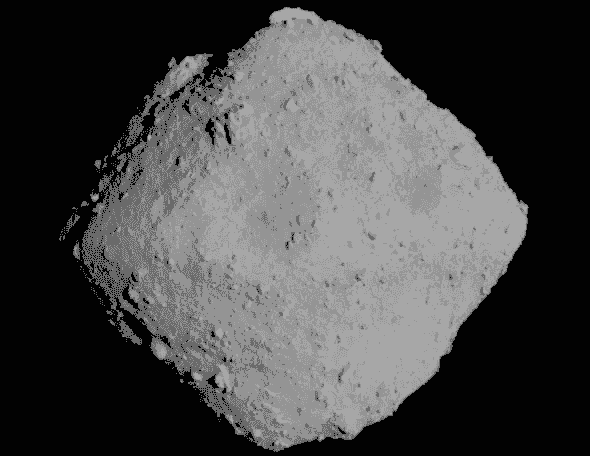
Two chemical molecules required for living beings have been discovered in samples recovered from the asteroid Ryugu, supporting the theory that certain components required for the emergence of life arrived on Earth billions of years ago onboard space rocks.
On Tuesday, scientists announced the discovery of uracil and niacin in rocks collected by the Japanese Space Agency’s Hayabusa2 spacecraft from two sites on Ryugu in 2019.
Compound Containing Living Organism’s Cells
Uracil is a nucleobase, which means it contains nitrogen. It is one of the five nucleobases found in DNA and RNA, the proteins and molecules that contain genetic information and instructions essential for living species’ cells.
The findings were published in the journal Nature Communications on Tuesday. Ryugu is a diamond-shaped carbon-rich asteroid about 3,000 feet (1 kilometer) wide. Hayabusa2 was the first mission to return an asteroid’s subsurface sample to Earth.
Read more: Powerful genome editing tool CRISPR poses potential in reversing vision loss
Asteroid Composition Research Expansion

The chemicals were discovered after the researchers soaked particles gathered from Ryugu in hot water and studied the results using various observational methods, including liquid chromatography and mass spectrometry.
The team then discovered the signs of uracil, niacin, and other organic nitrogen molecules. The findings from Ryugu’s samples, taken together, add to the growing body of evidence indicating the building blocks of life originated in space and were transported to Earth billions of years ago by meteorites.
Ryugu could have been part of a larger celestial body, such as a comet, before being shattered into pieces by collisions with other space objects.
It’s also likely that when space rocks collided with other planets in our solar system, they carried some of the same building blocks of life.
Scientists now want to determine how common these chemicals are in asteroids. Fortunately, NASA’s Origins, Spectral Interpretation, Resource Identification, Security-Regolith Explorer, or OSIRIS-REx probe will send a sample from another asteroid named Bennu to Earth in September.
Read more: Experimental pill: Revumenib shows potential in leukemia treatment

